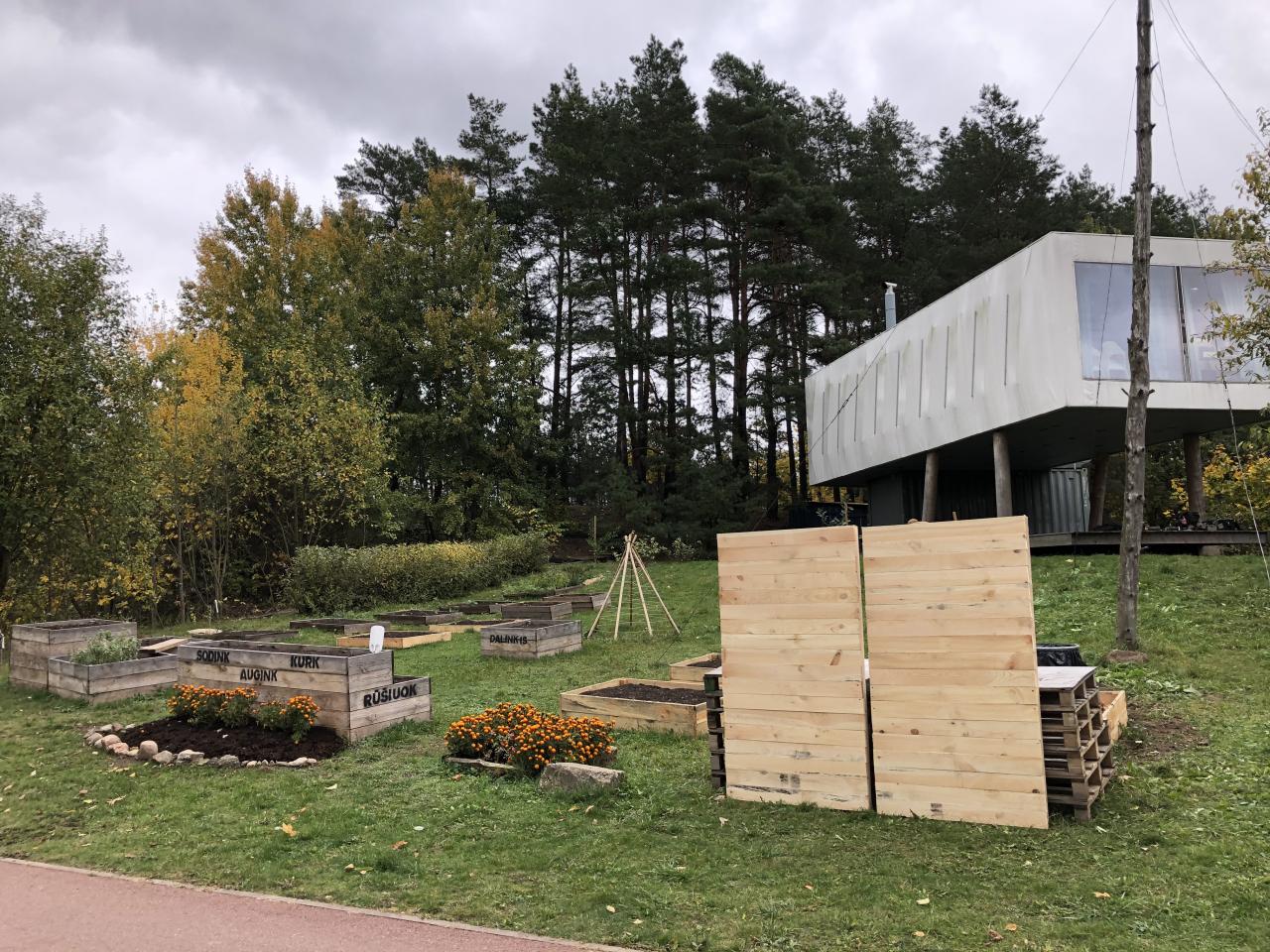
It is known to all that Lithuania is one of the greenest countries in Europe and its capital city, Vilnius, one of the greenest city in Europe with 46% of the territory dedicated to green space: parks, squares and forests. Thanks to RU:RBAN and the city’s ULG (Urbact Local Group), the number of urban vegetable gardens is growing rapidly as a new phenomenon embraced by citizens and included as a sustainable tool within the city’s urban development policies.
The ULG is very active not only in the setting up of urban gardens but also in the policy making concerning urban agriculture. One of the ULG members, architect Laura Petruškevičiūtė, is a vivid example of their commitment and enthusiasm for the project…and for doing their part in contributing to the quality of life in their city. She has lived in Vilnius Pilaitė district since her childhood and, after studying and working abroad for ten years, came back to Vilnius and settled in that same district. While living in Glasgow she developed projects based on using gardening to turn abandoned spaces into areas appealing to communities in cooperation with the municipality. The development of a community project in the Scottish city proved to be a successful community empowerment tool and decided to apply her knowledge in Pilaitė, gathering like-minded neighbours and starting the project “Ideas Garden”. Earlier this year Laura was interviewed by Lithuanian national TV and had the opportunity to show her work and her achievements in Pilaitė. We are pleased to share this interview with our readers: https://www.youtube.com/watch?v=HhBm3sLbV-A&list=PLFdRyozqiBIjuXW7_MIOm8hhzJ-ruvlDt&index=2&t=65s
In addition to her extraordinary commitment to urban agriculture in Vilnius and to the community of the Pilaitė district, Laura has also produced a very useful tool for all of us to use: a Gardening Guide on how to set up an urban garden in our cities. The guide is available at: https://issuu.com/laurapetruskeviciute/docs/guide_to_urban_gardening
Laura’s work is yet another demonstration of RU:RBAN’s impact in EU cities and we hope that she can be an inspiration to many other citizens wishing to contribute to the wellbeing of their communities, just like Laura is doing in Vilnius.

